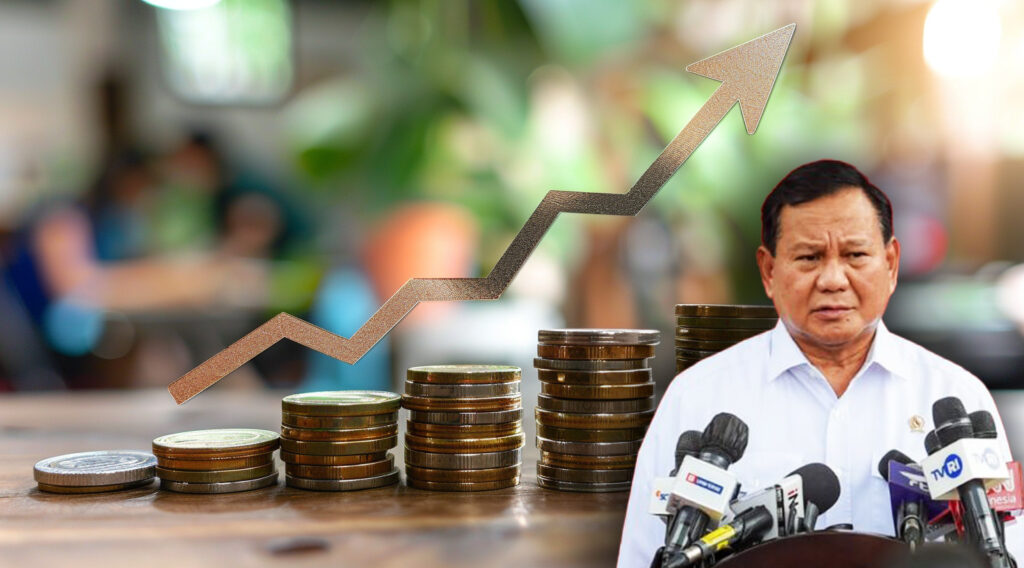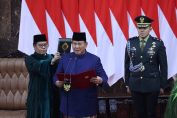JAKARTA, June 15 (Reuters) – Indonesia’s President-elect Prabowo Subianto has no plans to boost the country’s public debt to 50% of gross domestic product (GDP), a senior aide said on Saturday, denying a report that had hit the nation’s currency and bond markets.
Thomas Djiwandono, who leads fiscal discussions between Prabowo’s economic team and the outgoing government’s finance ministry, told Reuters that Prabowo had not set any target for debt levels and would adhere to legal limits on fiscal metrics.
The rupiah fell as much as 0.9% and bond yields jumped on Friday, partly due to fiscal concerns, after Bloomberg News reported Prabowo wanted to steadily increase Indonesia’s debt-to-GDP ratio to 50% in his five-year term from under 40% now.
“We are not talking about debt-to-GDP target at all. This is not a formal policy plan,” said Thomas, the incoming president’s nephew.
Prabowo, who will take office in October, said last month that Indonesia should “be more daring” in taking on debt to fund development programmes and hit his 8% economic growth target for Southeast Asia’s biggest economy, but he has also repeatedly pledged to comply with budget deficit limits.
“It’s important to note that that is why Prabowo and his formal team talk about fiscal prudence, because it is within those principles,” Thomas said. “Anything about debt levels, or going beyond the deficit is noise.”
Ratings agencies and investors have been closely monitoring Prabowo’s fiscal policy, fearing costly programmes he pledged before his landslide victory in February’s election would derail Indonesia’s record of fiscal prudence.
Discussions between Prabowo’s team and Finance Minister Sri Mulyani Indrawati have focussed on increasing revenues, reviewing spending and making budget space for programmes such as providing free meals to children, within legal limits of public finances, Thomas said, adding the 2025 deficit would stay under 3% of GDP.
In the aftermath of the 1990s Asian financial crisis, Indonesia mandated the annual budget deficit not to exceed 3% of GDP and capping debt at 60%. This has helped Indonesia build a solid record of fiscal management and won investment grade ratings from agencies.
While the debt ratio has risen under the government of President Joko Widodo, particularly after heavy spending during the COVID-19 pandemic, Sri Mulyani has been trying to bring this down by reducing annual deficits. Last year’s budget deficit was 1.65% of GDP, the smallest in 12 years.
By Gayatri Suroyo and Kate Lamb
Source : Reuters.com









